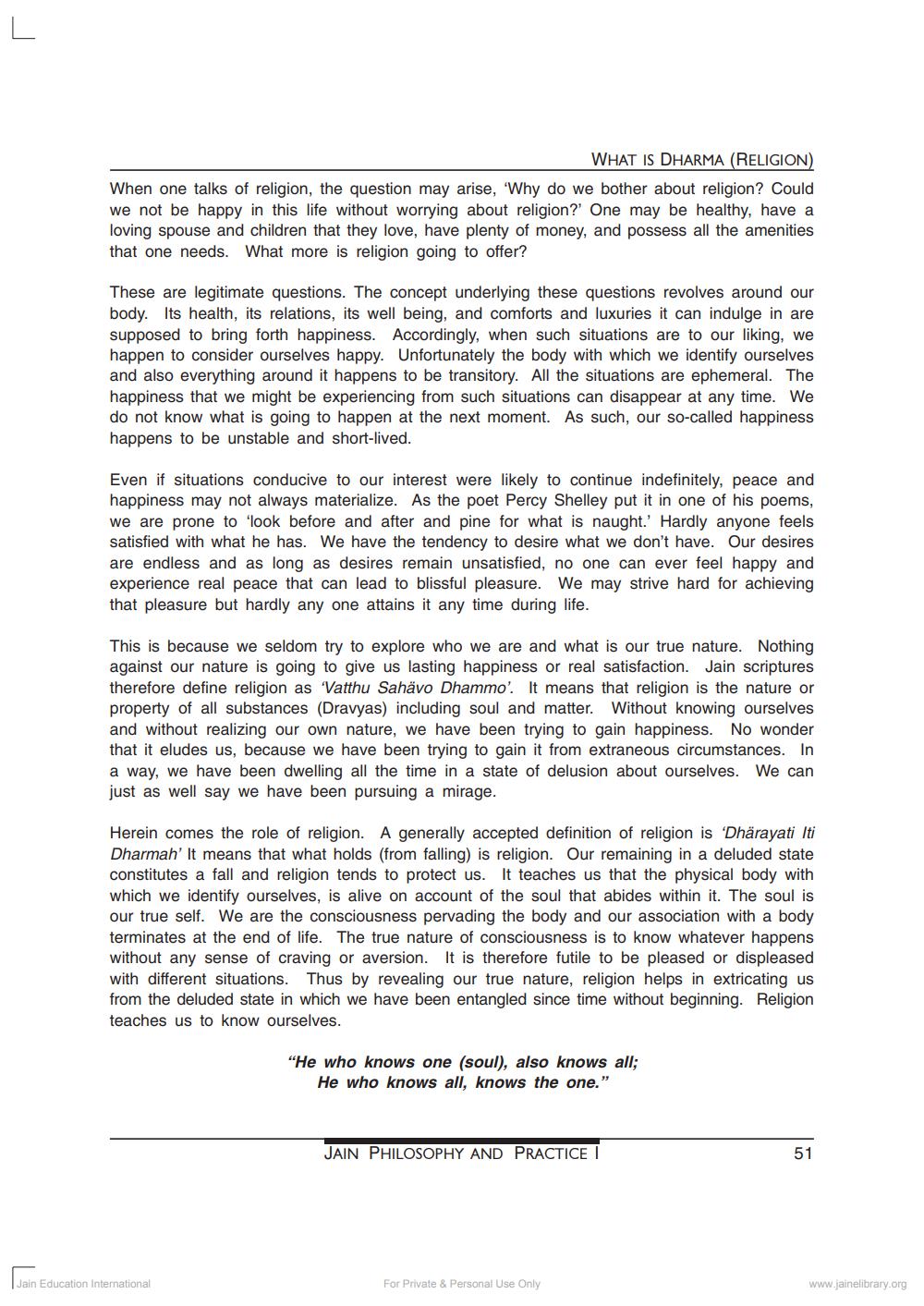________________
WHAT IS DHARMA (RELIGION) When one talks of religion, the question may arise, 'Why do we bother about religion? Could we not be happy in this life without worrying about religion?' One may be healthy, have a loving spouse and children that they love, have plenty of money, and possess all the amenities that one needs. What more is religion going to offer?
These are legitimate questions. The concept underlying these questions revolves around our body. Its health, its relations, its well being, and comforts and luxuries it can indulge in are supposed to bring forth happiness. Accordingly, when such situations are to our liking, we happen to consider ourselves happy. Unfortunately the body with which we identify ourselves and also everything around it happens to be transitory. All the situations are ephemeral. The happiness that we might be experiencing from such situations can disappear at any time. We do not know what is going to happen at the next moment. As such, our so-called happiness happens to be unstable and short-lived.
Even if situations conducive to our interest were likely to continue indefinitely, peace and happiness may not always materialize. As the poet Percy Shelley put it in one of his poems, we are prone to 'look before and after and pine for what is naught.' Hardly anyone feels satisfied with what he has. We have the tendency to desire what we don't have. Our desires are endless and as long as desires remain unsatisfied, no one can ever feel happy and experience real peace that can lead to blissful pleasure. We may strive hard for achieving that pleasure but hardly any one attains it any time during life.
This is because we seldom try to explore who we are and what is our true nature. Nothing against our nature is going to give us lasting happiness or real satisfaction. Jain scriptures therefore define religion as Vatthu Sahavo Dhammo! It means that religion is the nature or property of all substances (Dravyas) including soul and matter. Without knowing ourselves and without realizing our own nature, we have been trying to gain happiness. No wonder that it eludes us, because we have been trying to gain it from extraneous circumstances. In a way, we have been dwelling all the time in a state of delusion about ourselves. We can just as well say we have been pursuing a mirage.
Herein comes the role of religion. A generally accepted definition of religion is 'Dhärayati Iti Dharmah' It means that what holds (from falling) is religion. Our remaining in a deluded state constitutes a fall and religion tends to protect us. It teaches us that the physical body with which we identify ourselves, is alive on account of the soul that abides within it. The soul is our true self. We are the consciousness pervading the body and our association with a body terminates at the end of life. The true nature of consciousness is to know whatever happens without any sense of craving or aversion. It is therefore futile to be pleased or displeased with different situations. Thus by revealing our true nature, religion helps in extricating us from the deluded state in which we have been entangled since time without beginning. Religion teaches us to know ourselves.
"He who knows one (soul), also knows all;
He who knows all, knows the one."
JAIN PHILOSOPHY AND PRACTICE I
Jain Education International
For Private & Personal Use Only
www.jainelibrary.org




